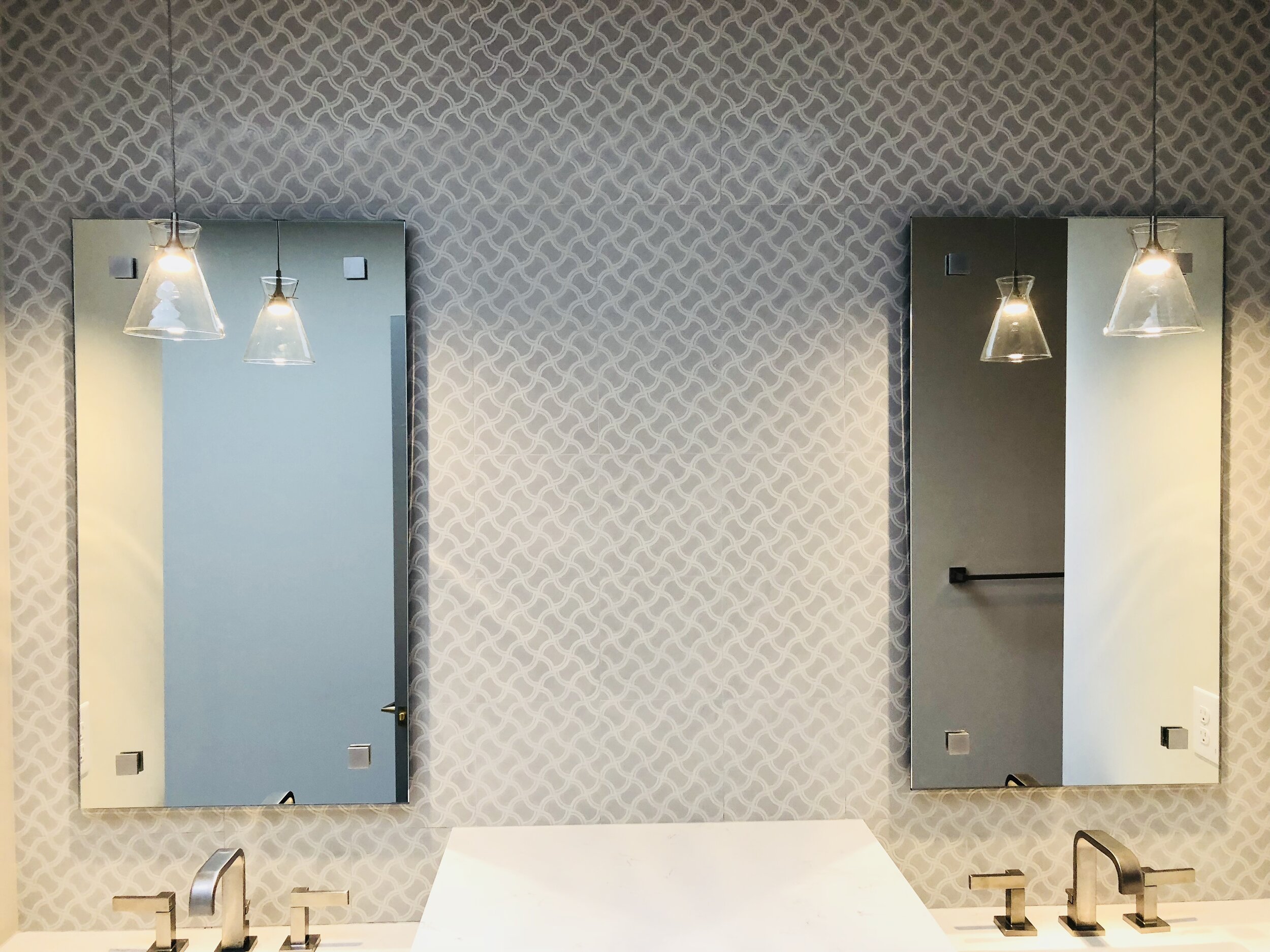
FAQs
All your questions answered.
What is the difference between Tempered vs. Annealed Glass?
Tempered glass is annealed glass that goes through additional heat treatment to create a very hard and durable glass. Tempered glass is used in applications where safety is a concern. Annealed glass breaks into large shards, while tempered glass into small, pebble like pieces. Tempered glass is about 4X stronger than annealed.
What is the difference between flat polished edges and pencil polish?
Flat polished edges are a straight edge finish that provides furniture grade edge quality on glass. Characterized by clean lines, a glossy finish and chamfered edges, flat polish is one of the most popular glass finish options. Pencil polished glass edges are ground smooth, finished with a shiny or glossy polish, and feature a slight curve. The unique finish makes pencil polishing ideal for aesthetics
What’s a header and why do I need one?
A header is a finished metal (typically aluminum) support bar used to reinforce frameless shower door systems. In some configurations and depending upon the shape and size of the enclosure, a header may be used to support and enhance safety of all glass enclosures.
Why does my tile need to be finished before my measurement appointment?
This is a critical step! Glass tolerances are very tight - typically between 1/16” and 1/8” depending upon the glass thickness. To provide the best fit for your project, DGI will measure only after tile has been installed.
What’s standard height for a shower?
For framed & semi-framed systems, standard heights are 72” or 80”. Custom heights are also available. For frameless systems, height depends on the location of the showerhead(s). We recommend the glass to be at least above the bottom of the showerhead.
What kind of enclosure can I put on a tub?
Framed, semi-framed and frameless systems are all compatible with tubs. Designs range from sliders, to barn doors, hinged and even splash panels.
What colors of hardware can I choose from?
Standard hardware finishes include: Chrome, brushed nickel, Oil Rubbed Bronze and Matte Black. Custom finishes are also available (may take longer than standard lead times)
What if I don’t want exposed channel?
There are several design options to minimize the appearance of metal channel common with frameless shower enclosures. Wall mounted glass clips can replace channel. In addition, channel can be recessed into tile to provide a very clean aesthetic. Keep in mind that recessed channel must be installed PRIOR to floor or shwer tile.
Where can I look at my different hardware options?
See the hardware gallery under the products section or click the link HERE
What are the different thicknesses of glass available and for what?
⅛”, ¼”, 3/16”, ⅜”, ½”, ¾” and laminated glass up to 1” OA
What’s the difference between standard clear glass and starphire?
Starphire glass utilizes a low-iron formula that provides an optically clearer product than standard clear glass. Clear glass tends to have a green tint that, when viewed through, creates a different hue on surrounding surfaces. See picture below
Will DGI work or repair products installed or purchased by others?
The short answer is no. The long answer is: If the original enclosure was not installed by DGI, due to many reasons, we cannot repair products installed by others. All of our enclosures are custom made to fit your space. We use proprietary hardware, parts and installation processes, and may not have access to the pieces needed to repair your existing system. However, DGI would be happy to design, fabricate and install a new, updated and upgraded enclosure for you
Who is a typical DGI customer?
DGI serves the entire community. From Homeowners, Architects and Designers to Homebuilders and Commercial General Contractors, DGI looks forward to providing the highest quality product and service available.
Does DGI provide a warranty?
Yes! DGI warrants to the original purchaser of any new shower enclosure be free from defects in material or workmanship for one year after original purchase date. DGI agrees to repair or replace any defective part at no charge - trip charges for remote locales may apply. Please note that the warranty does not cover glass, damage caused by chemical cleaners or damage caused by a lack of reasonable care. No other warranty expressed or implied is valid.
Shower enclosure design tips:
Several design considerations should be taken into account as your project progresses.
Placement of showerheads/sprays should be directed toward tiled walls and away from enclosure openings. Incorrectly placed heads/sprays can and will cause leaks.
Be aware that the use of glass tile - particularly in critical hardware attachment areas - is discouraged. Glass tiles tend to break or crack when being drilled through, or even after installation due to the stresses and movement of doors or hardware.
Use of contoured tile may result in larger than typical gaps which will require additional caulking and may result in an uneven appearance.
If the enclosure is a neo-angle design, please see the illustration below to review proper wall construction.
All floors, curbs and seats should be pitched away from glass to eliminate standing water and leaks.
Door heights exceeding 90” typically require a transom panel above the door.






